Marriage equality will be banned in these 31 states if Obergefell is overturned
31 states would ban marriage equality if they couldOver 60 percent of the country will no longer have marriage equality if the U.S. Supreme Court reverses it.Laws prohibiting same-sex couples from marrying were deemed unconstitutional by the 2015 ruling, Obergefell v. Hodges. This could change if the court were to revisit and reverse the ruling, as it did with Roe v. Wade, which previously deemed abortion bans unconstitutional.If the Supreme Court reverses Obergefell and determines bans against marriage equality are not unconstitutional, lower or federal court rulings that declared the bans are unconstitutional will be invalidated as they are bound to Supreme Court precedent. This means states would be able to enforce their bans even if they weren't apart of the Obergefell lawsuit. The only state with a marriage equality law still on the books that would not be enforceable is Iowa, where the state Supreme Court — the next highest authority after the U.S. Supreme Court — deemed the ban unconstitutional. Similar to the federal court, the state Supreme Court would need to agree to hear the case again to reverse this.Related: Will marriage equality be overturned? Here's how it could happen If Obergefell is reversed, marriages between same-sex couples will still be recognized federally under the Respect for Marriage Act. Signed into law by President Joe Biden in 2022, the act mandates that the federal government recognizes same-sex and interracial marriages, and that all states recognize those performed in other states. However, the act does not require states to allow marriages between same-sex couples.While the Supreme Court has made no official move to reconsider marriage equality, nine states have recently introduced resolutions asking the court to hear the case again. None have yet passed, and even if they were to, the resolutions are nonbinding — meaning they carry no legal weight, and the court is not obligated to hear them.However, some justices have voiced opposition to Obergefell. When the conservative majority created by Donald Trump overturned Roe v. Wade, Clarence Thomas wrote in his concurring opinion at the time that the court should also revisit and overrule decisions that prevent state restrictions on contraception, marriage equality, sodomy, and other private consensual sex acts, calling the rulings "demonstrably erroneous."Here are the 31 states where marriages between same-sex couples would again be banned if Obergefell is overturned, as compiled by the Movement Advancement Project, 24 of which have constitutional amendments that can only be overturned through referendum votes. AlabamaAlabama has a constitutional amendment, Amendment 774, that banned marriage equality in a 2006 referendum vote. It is also banned under HB152 from 1998, and an executive order from the governor in 1996. AlaskaAlaska has a constitutional amendment, Ballot Measure 2, that banned marriage equality in a 1998 referendum vote. It is also banned under the 1996 law HB 227.ArizonaArizona has a constitutional amendment, Proposition 102, that banned marriage equality in a 1998 referendum vote. It is also banned under the 1996 law ARS Title 25-101.ArkansasArkansas has a constitutional amendment, Amendment 3, that banned marriage equality in a 2004 referendum vote. It is also banned under the 1997 law HB1004. FloridaFlorida has a constitutional amendment, Amendment 2, that banned marriage equality in a 2008 referendum vote. It is also banned under a 1977 law. GeorgiaGeorgia has a constitutional amendment, Amendment 1, that banned marriage equality in a 2004 referendum vote. It is also banned under the 2004 law HR 1470.IdahoIdaho has a constitutional amendment, Amendment 2, that banned marriage equality in a 2006 referendum vote. It is also banned under a 1996 law. IndianaIndiana was not able to bring its constitutional amendment banning marriage equality to vote before Obergefell was instated, but it is banned under the 2014 law HJR 3. KansasKansas has a constitutional amendment, Kansas Amendment 1, that banned marriage equality in a 2005 referendum vote. It is also banned under a 1996 law. KentuckyKentucky has a constitutional amendment, Amendment 1, that banned marriage equality in a 2004 referendum vote. It is also banned under a 1998 law. LouisianaLouisiana has a constitutional amendment that banned marriage equality in a 2004 referendum vote. It is also banned under laws from 1988 and 1999. MichiganMichigan has a constitutional amendment, Proposal 04-2, that banned marriage equality in a 2004 referendum vote. It is also banned under a 1995 law. MississippiMississippi has a constitutional amendment, Amendment 1, that banned marriage equality in a 2004 referendum vote. It is also banned under the 1997 law SB 2053.MissouriMissouri has a constitutional amendment, Amendment 2, that banned marriage equality in a 2004 referendum vote. It is also banned under the 1996 law SB 895.MontanaMontana has a constitutional amendment, I
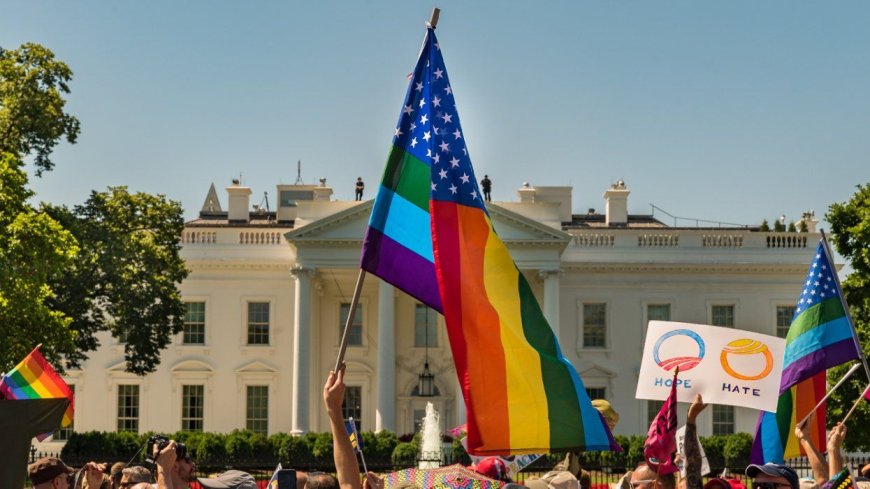

31 states would ban marriage equality if they could
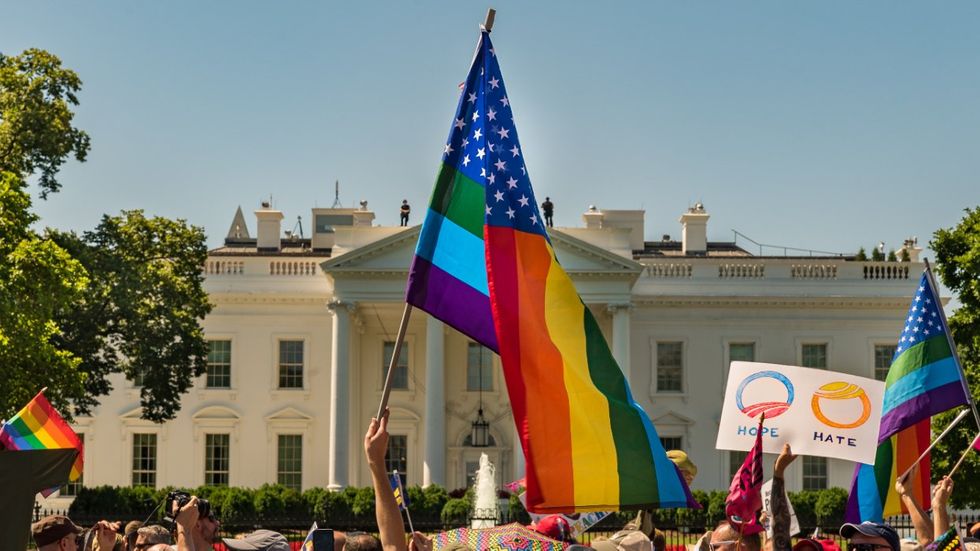
Over 60 percent of the country will no longer have marriage equality if the U.S. Supreme Court reverses it.
Laws prohibiting same-sex couples from marrying were deemed unconstitutional by the 2015 ruling, Obergefell v. Hodges. This could change if the court were to revisit and reverse the ruling, as it did with Roe v. Wade, which previously deemed abortion bans unconstitutional.
If the Supreme Court reverses Obergefell and determines bans against marriage equality are not unconstitutional, lower or federal court rulings that declared the bans are unconstitutional will be invalidated as they are bound to Supreme Court precedent. This means states would be able to enforce their bans even if they weren't apart of the Obergefell lawsuit.
The only state with a marriage equality law still on the books that would not be enforceable is Iowa, where the state Supreme Court — the next highest authority after the U.S. Supreme Court — deemed the ban unconstitutional. Similar to the federal court, the state Supreme Court would need to agree to hear the case again to reverse this.
Related: Will marriage equality be overturned? Here's how it could happen
If Obergefell is reversed, marriages between same-sex couples will still be recognized federally under the Respect for Marriage Act. Signed into law by President Joe Biden in 2022, the act mandates that the federal government recognizes same-sex and interracial marriages, and that all states recognize those performed in other states. However, the act does not require states to allow marriages between same-sex couples.
While the Supreme Court has made no official move to reconsider marriage equality, nine states have recently introduced resolutions asking the court to hear the case again. None have yet passed, and even if they were to, the resolutions are nonbinding — meaning they carry no legal weight, and the court is not obligated to hear them.
However, some justices have voiced opposition to Obergefell. When the conservative majority created by Donald Trump overturned Roe v. Wade, Clarence Thomas wrote in his concurring opinion at the time that the court should also revisit and overrule decisions that prevent state restrictions on contraception, marriage equality, sodomy, and other private consensual sex acts, calling the rulings "demonstrably erroneous."
Here are the 31 states where marriages between same-sex couples would again be banned if Obergefell is overturned, as compiled by the Movement Advancement Project, 24 of which have constitutional amendments that can only be overturned through referendum votes.
Alabama
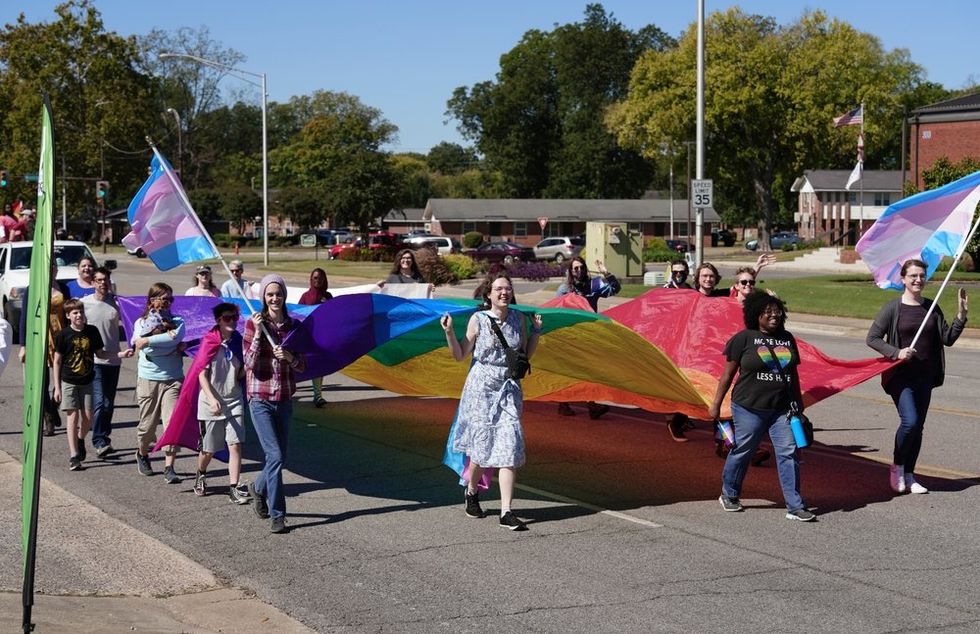
Alabama has a constitutional amendment, Amendment 774, that banned marriage equality in a 2006 referendum vote. It is also banned under HB152 from 1998, and an executive order from the governor in 1996.
Alaska

Alaska has a constitutional amendment, Ballot Measure 2, that banned marriage equality in a 1998 referendum vote. It is also banned under the 1996 law HB 227.
Arizona
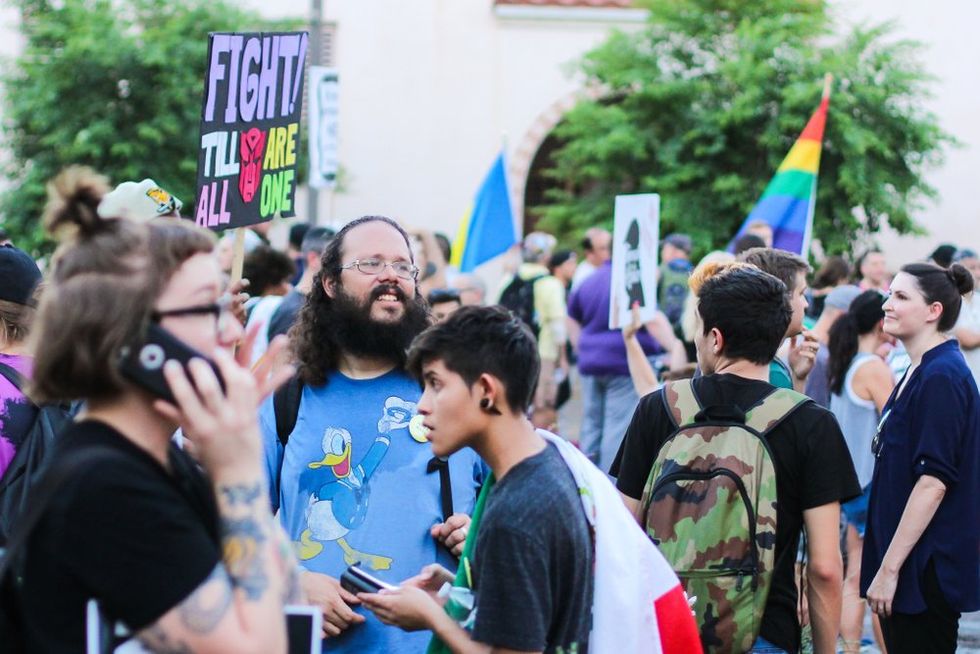
Arizona has a constitutional amendment, Proposition 102, that banned marriage equality in a 1998 referendum vote. It is also banned under the 1996 law ARS Title 25-101.
Arkansas

Arkansas has a constitutional amendment, Amendment 3, that banned marriage equality in a 2004 referendum vote. It is also banned under the 1997 law HB1004.
Florida
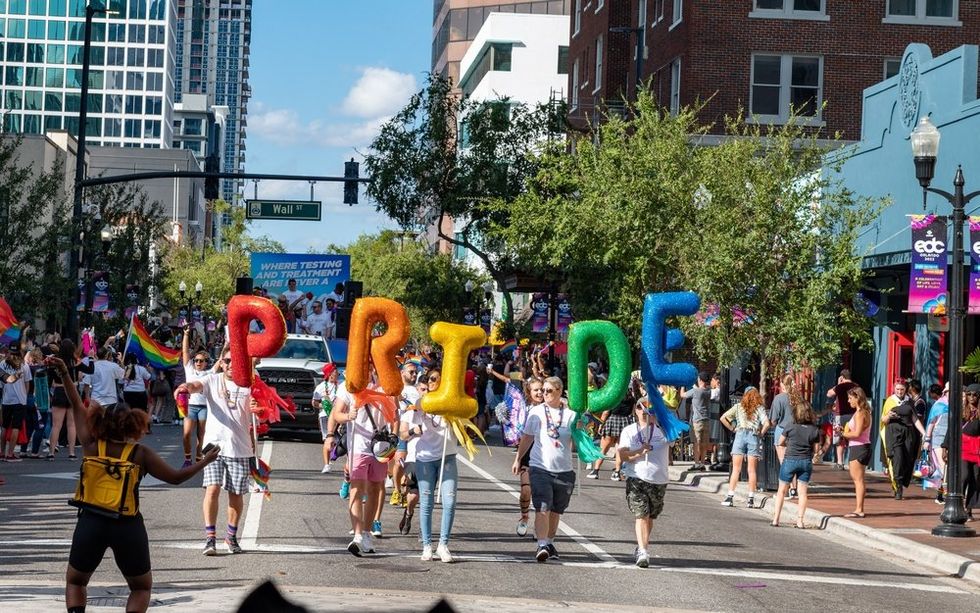
Florida has a constitutional amendment, Amendment 2, that banned marriage equality in a 2008 referendum vote. It is also banned under a 1977 law.
Georgia

Georgia has a constitutional amendment, Amendment 1, that banned marriage equality in a 2004 referendum vote. It is also banned under the 2004 law HR 1470.
Idaho
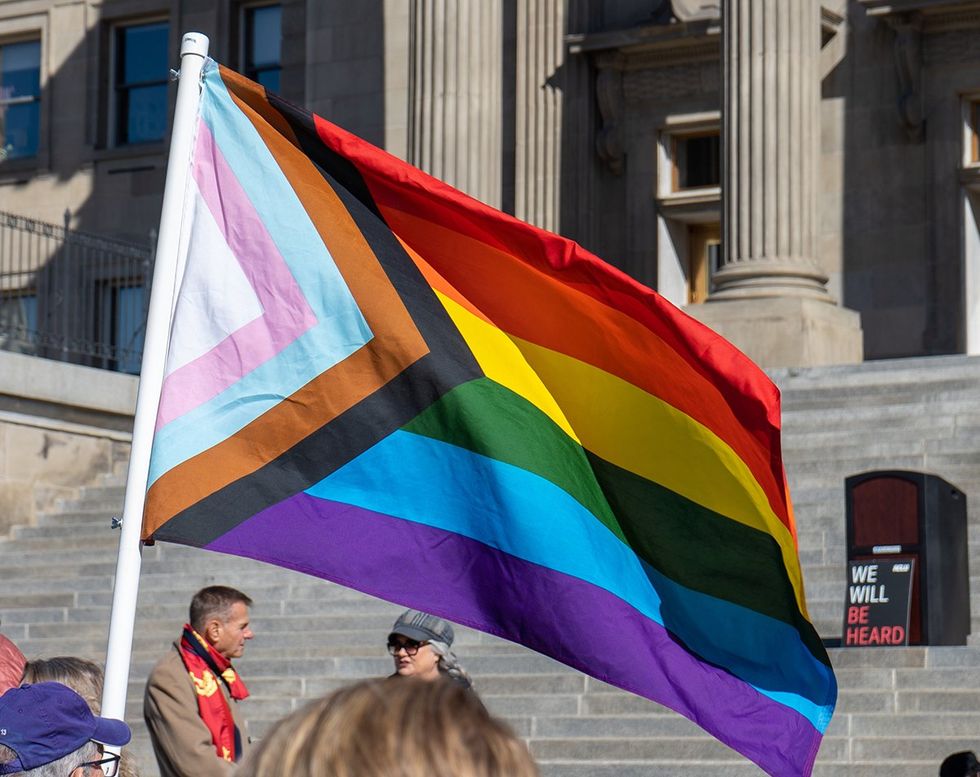
Idaho has a constitutional amendment, Amendment 2, that banned marriage equality in a 2006 referendum vote. It is also banned under a 1996 law.
Indiana

Indiana was not able to bring its constitutional amendment banning marriage equality to vote before Obergefell was instated, but it is banned under the 2014 law HJR 3.
Kansas
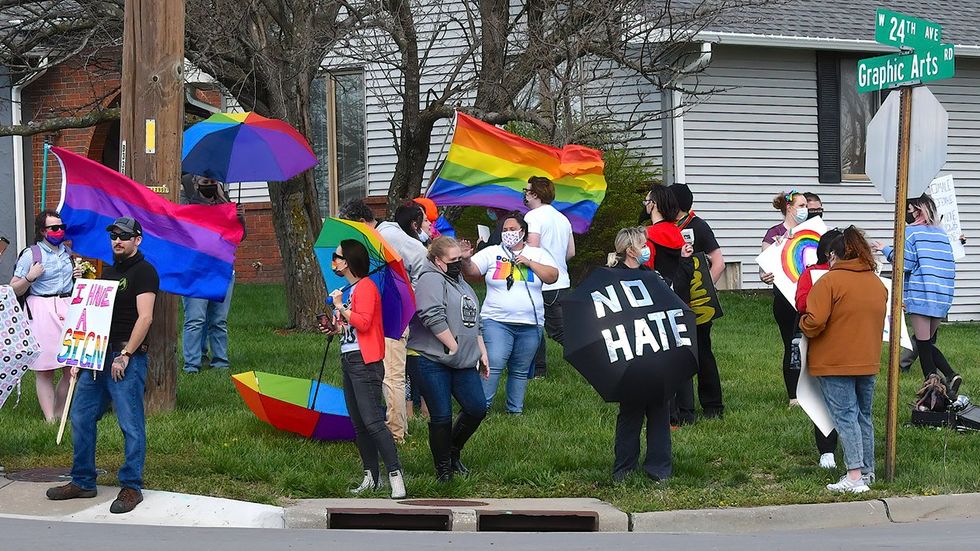
Kansas has a constitutional amendment, Kansas Amendment 1, that banned marriage equality in a 2005 referendum vote. It is also banned under a 1996 law.
Kentucky
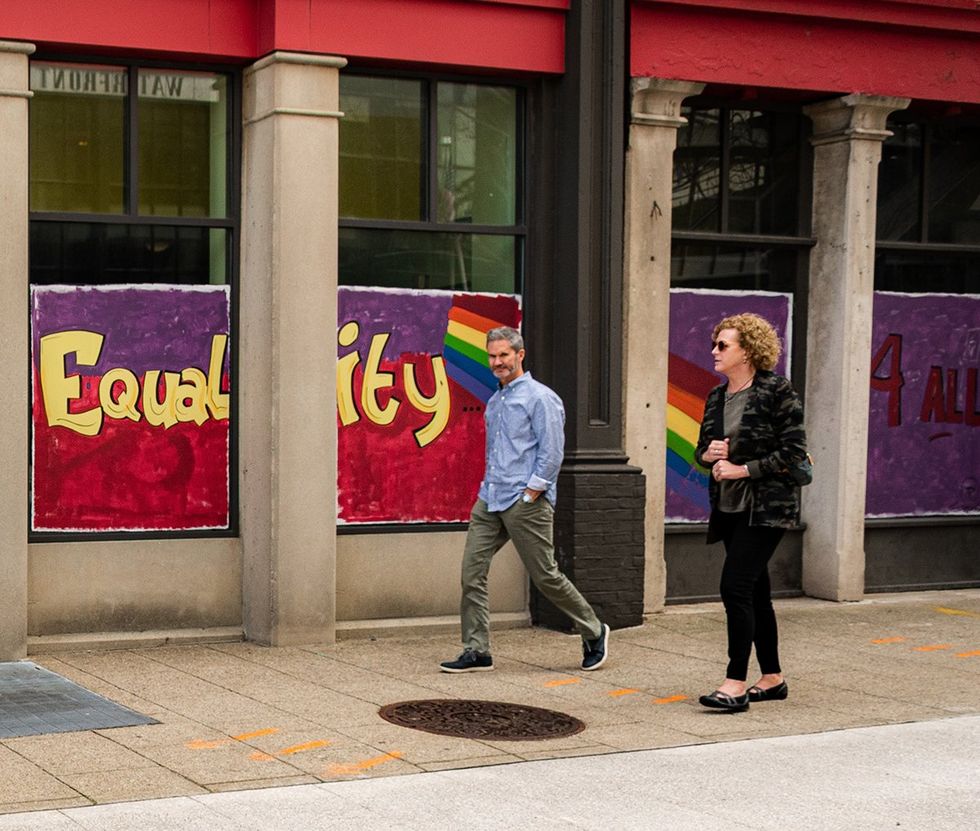
Kentucky has a constitutional amendment, Amendment 1, that banned marriage equality in a 2004 referendum vote. It is also banned under a 1998 law.
Louisiana
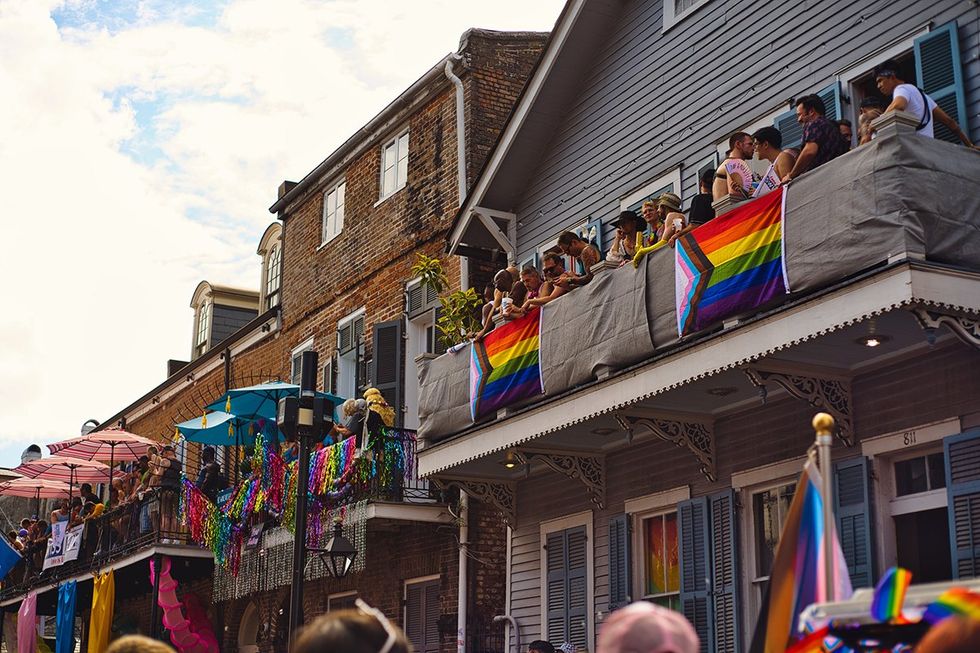
Louisiana has a constitutional amendment that banned marriage equality in a 2004 referendum vote. It is also banned under laws from 1988 and 1999.
Michigan
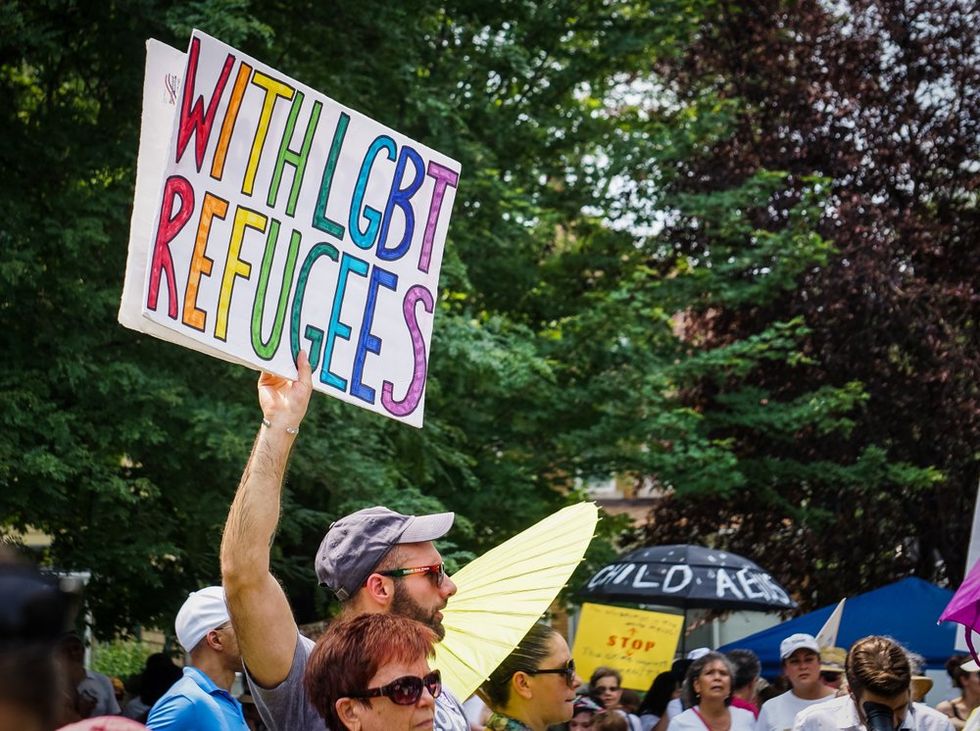
Michigan has a constitutional amendment, Proposal 04-2, that banned marriage equality in a 2004 referendum vote. It is also banned under a 1995 law.
Mississippi

Mississippi has a constitutional amendment, Amendment 1, that banned marriage equality in a 2004 referendum vote. It is also banned under the 1997 law SB 2053.
Missouri

Missouri has a constitutional amendment, Amendment 2, that banned marriage equality in a 2004 referendum vote. It is also banned under the 1996 law SB 895.
Montana
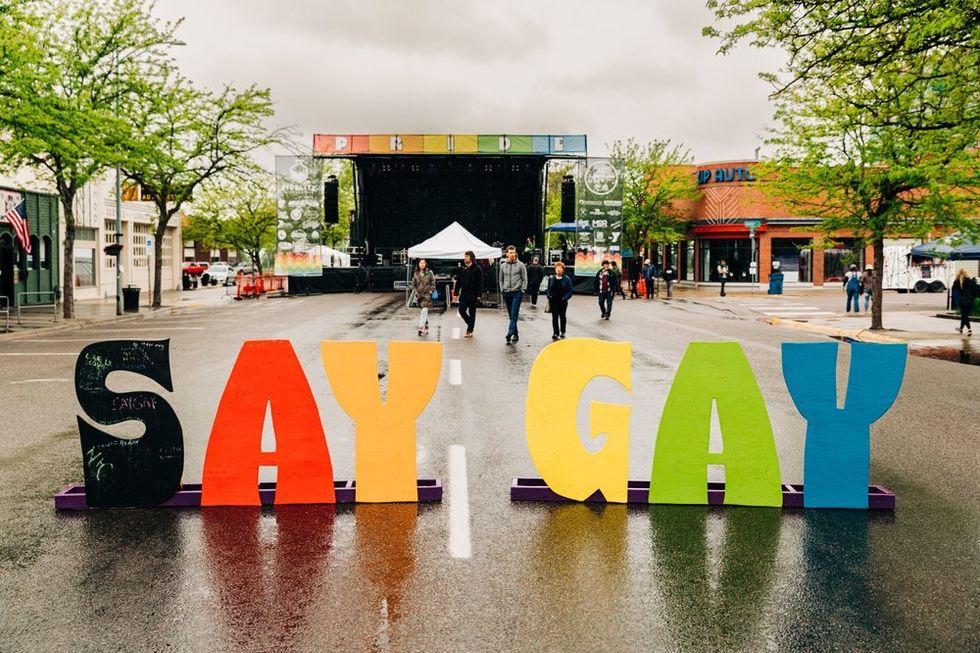
Montana has a constitutional amendment, Initiative 96, that banned marriage equality in a 2004 referendum vote. It is also banned under the a 1997 law.
Nebraska

Nebraska has a constitutional amendment, Initiative Measure 416, that banned marriage equality in a 2000 referendum vote.
North Carolina
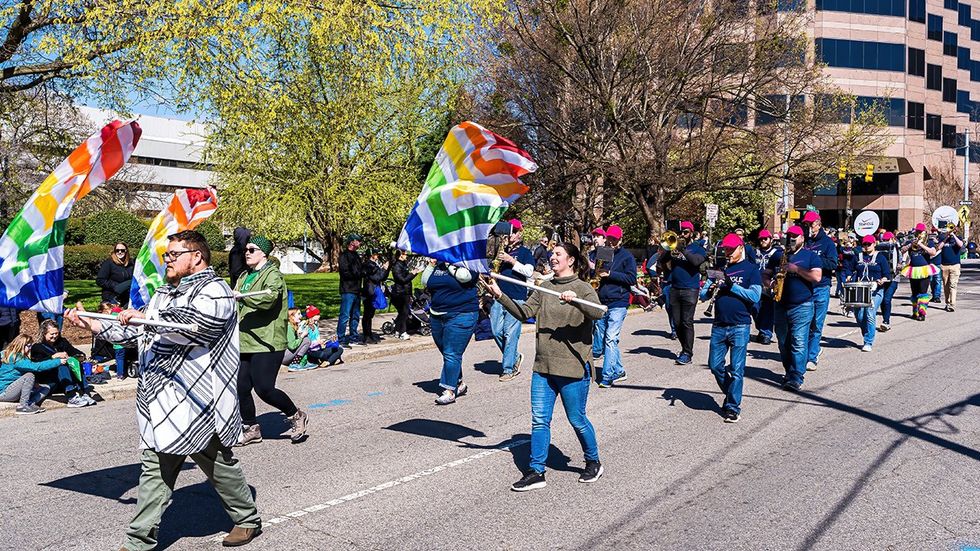
North Carolina has a constitutional amendment, Amendment 1, that banned marriage equality in a 2012 referendum vote. It is also banned under the 1995 law, HB 270.
North Dakota
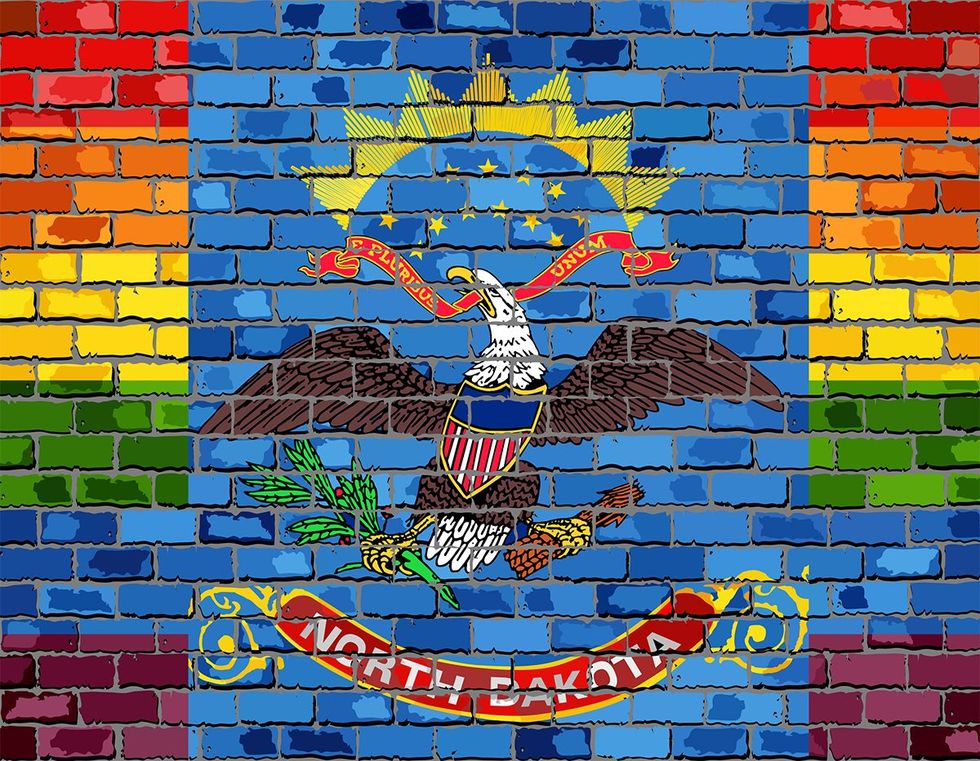
North Dakota has a constitutional amendment that banned marriage equality in a 2004 referendum vote. The state statutes also deny same-sex partnerships.
Ohio
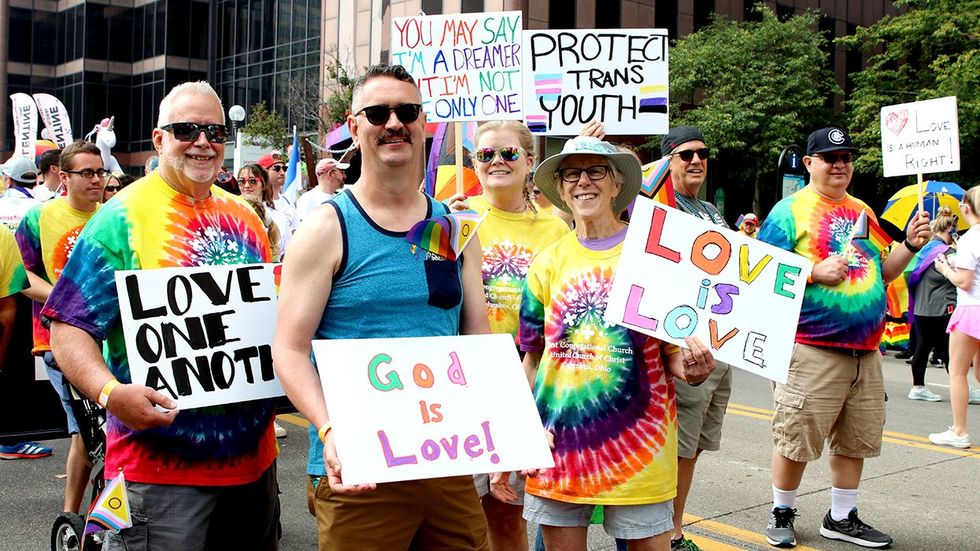
Ohio has a constitutional amendment, State Issue 1, that banned marriage equality in a 2004 referendum vote. It is also banned under the 2003 state Defense of Marriage Act.
Oklahoma
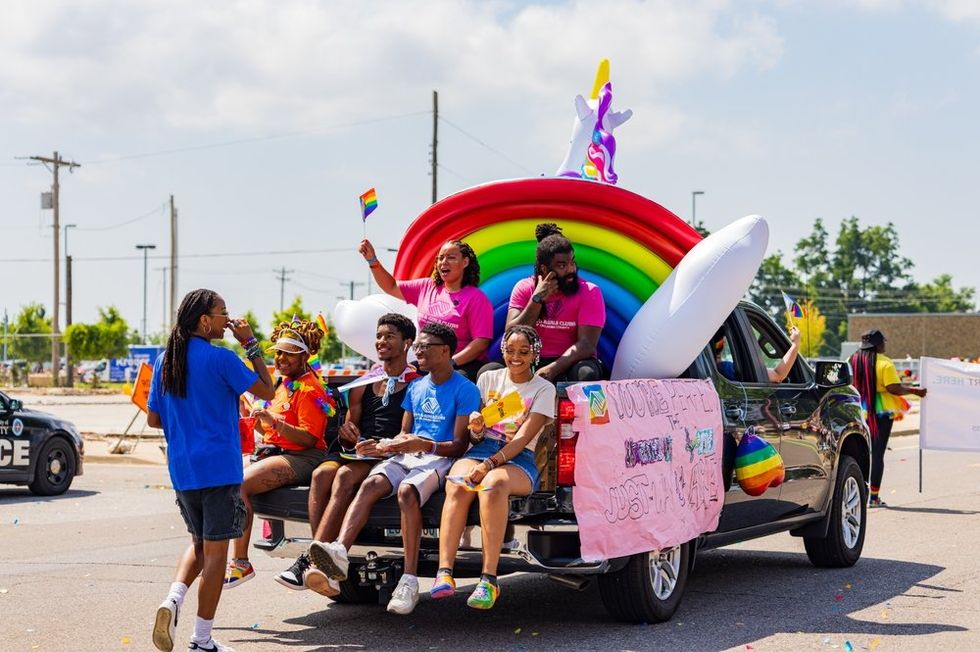
Oklahoma has a constitutional amendment, Question 711, that banned marriage equality in a 2004 referendum vote. It is also banned under a 1996 law.
Oregon
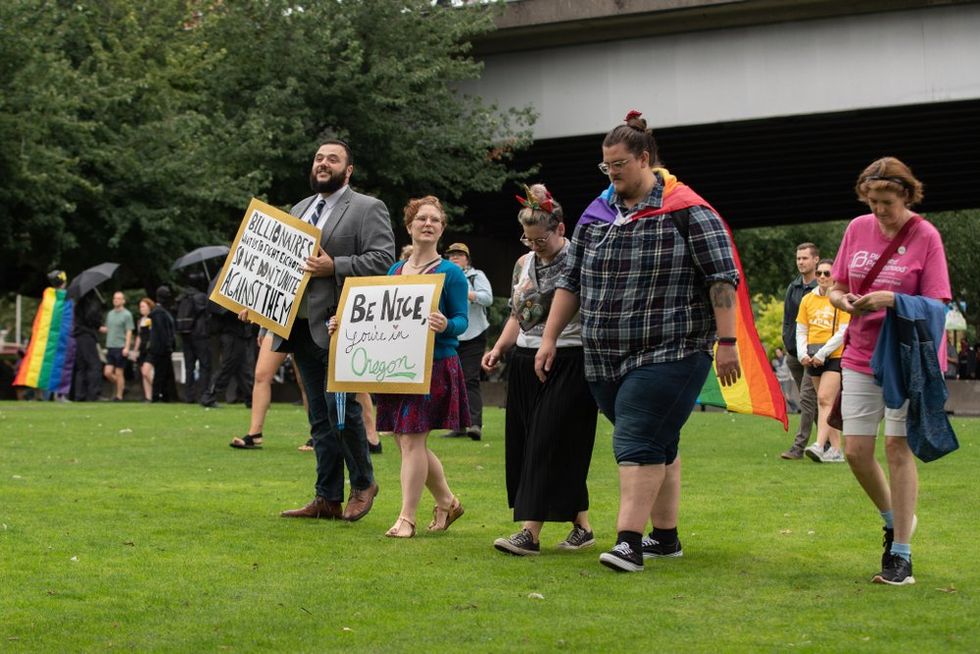
Oregon has a constitutional amendment, Measure 36, that banned marriage equality in a 2004 referendum vote.
Pennsylvania
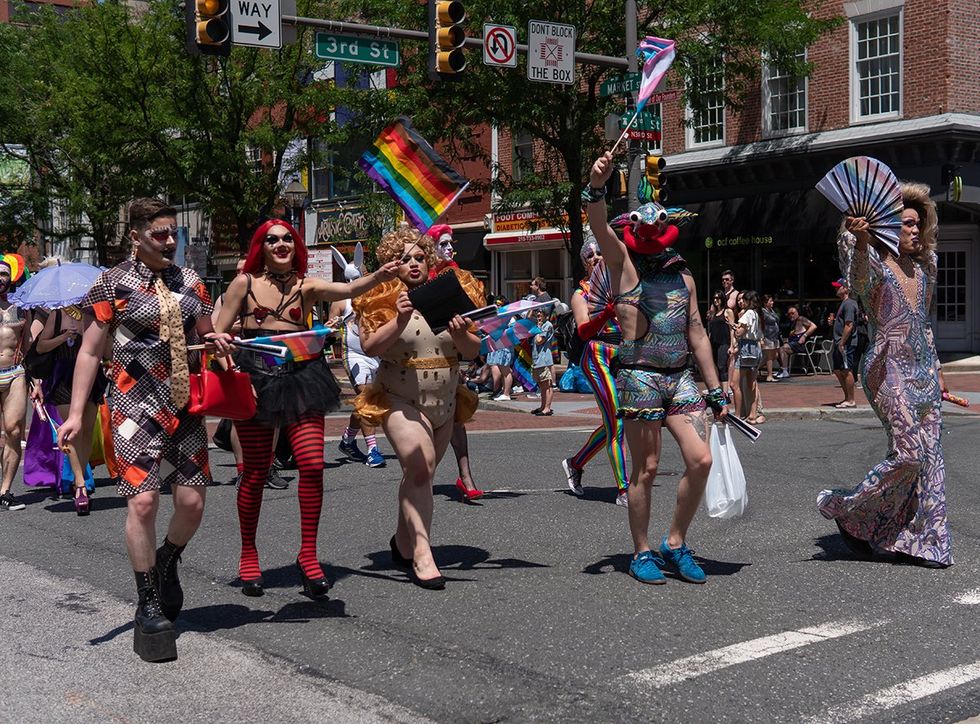
Pennsylvania has banned marriage equality under a law from 1996.
South Carolina

South Carolina has a constitutional amendment, Amendment 1, that banned marriage equality in a 2006 referendum vote. It is also banned under a 1996 law.
South Dakota
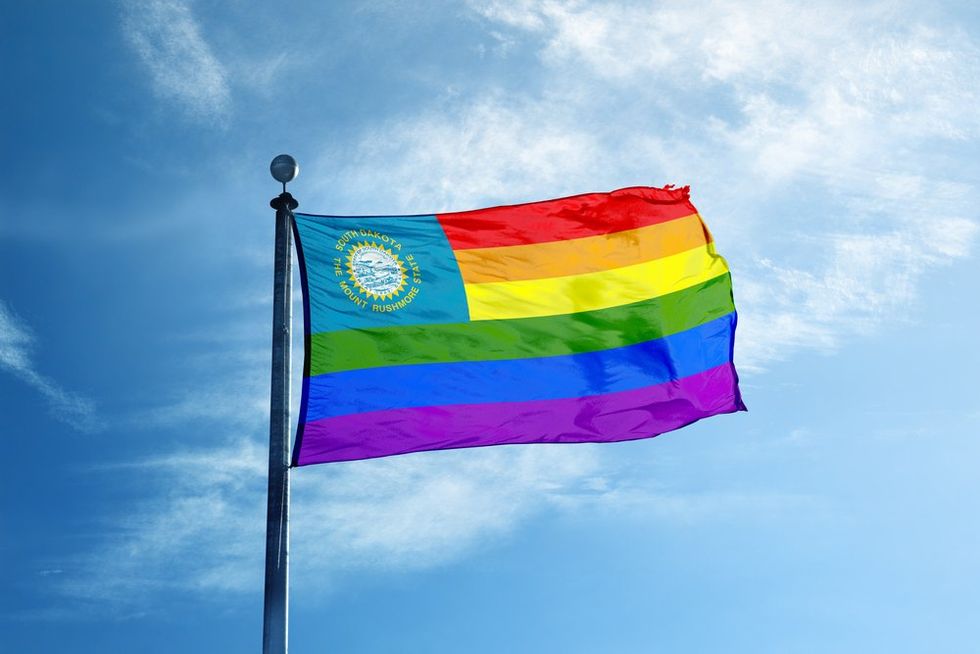
South Dakota has a constitutional amendment, Amendment C, that banned marriage equality in a 2006 referendum vote. The state statutes also deny same-sex partnerships.
Tennessee
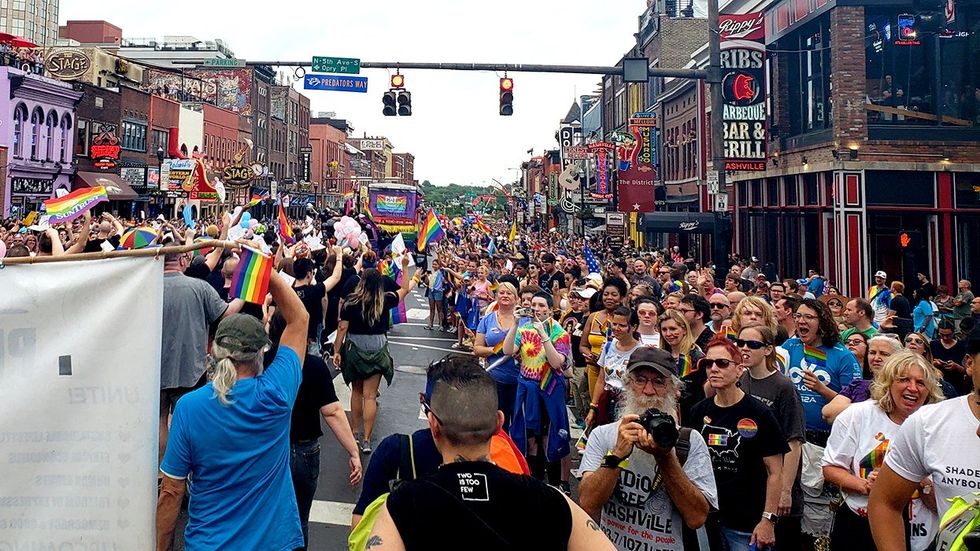
Tennessee has a constitutional amendment, Amendment 1, that banned marriage equality in a 2006 referendum vote. It is also banned under SB 1282.
Texas
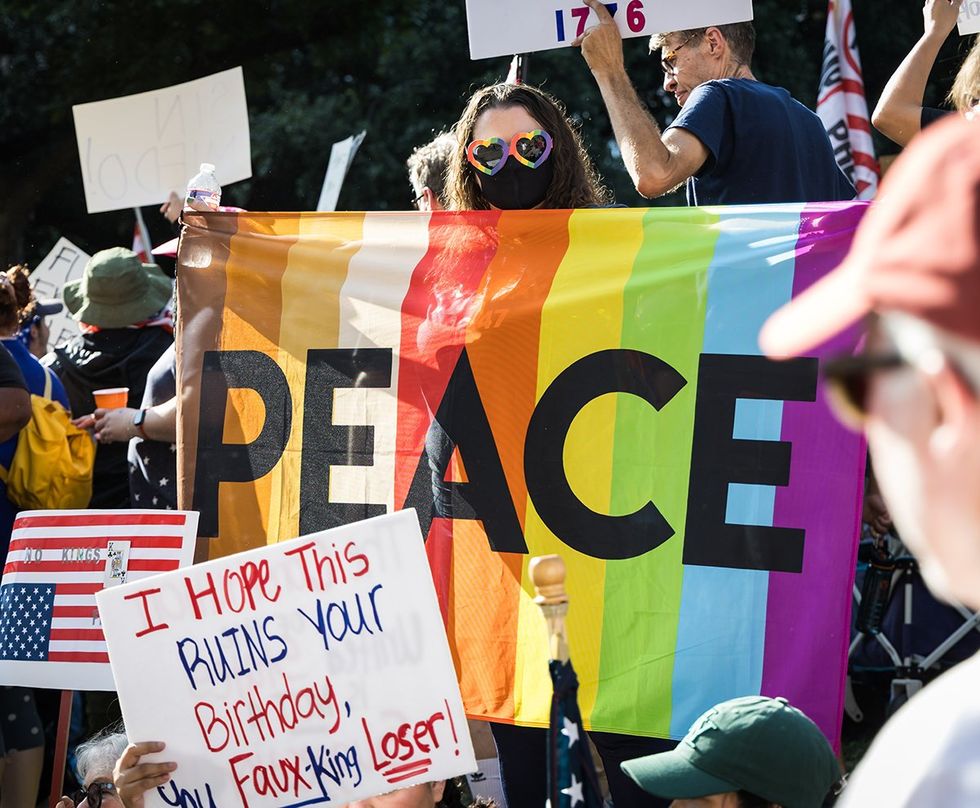
Texas has a constitutional amendment, Proposition 2, that banned marriage equality in a 2005 referendum vote. It is also banned under a 1973 law.
Utah
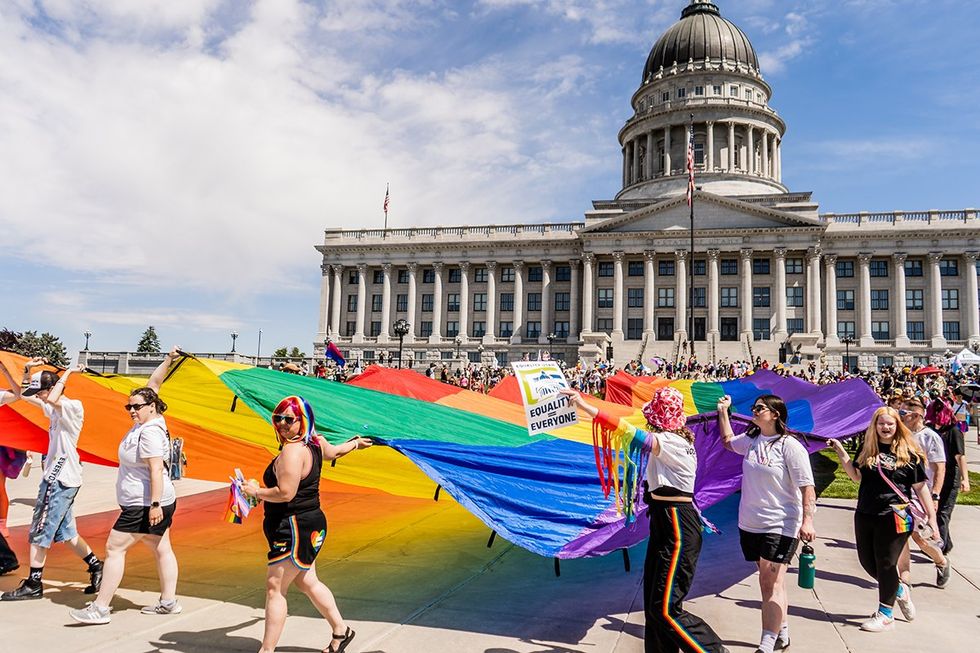
Utah has a constitutional amendment, Amendment 3, that banned marriage equality in a 2005 referendum vote. It is also banned under a 1995 law, HB 366.
Virginia
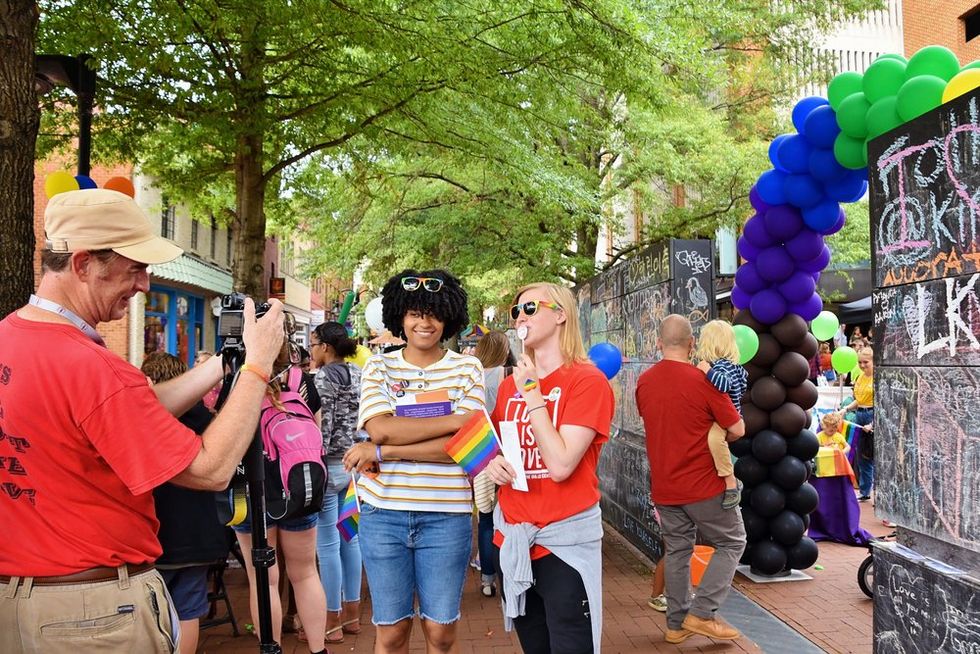
Virginia has a constitutional amendment, the Marshall-Newman Amendment, that banned marriage equality in a 2006 referendum vote.
West Virginia
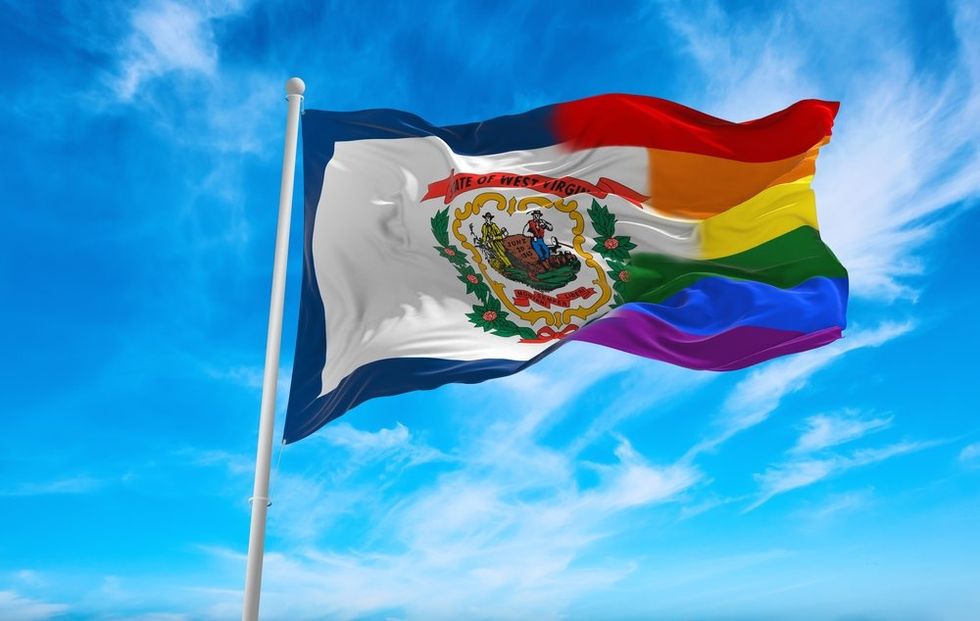
West Virginia state statutes deny same-sex partnerships.
Wisconsin
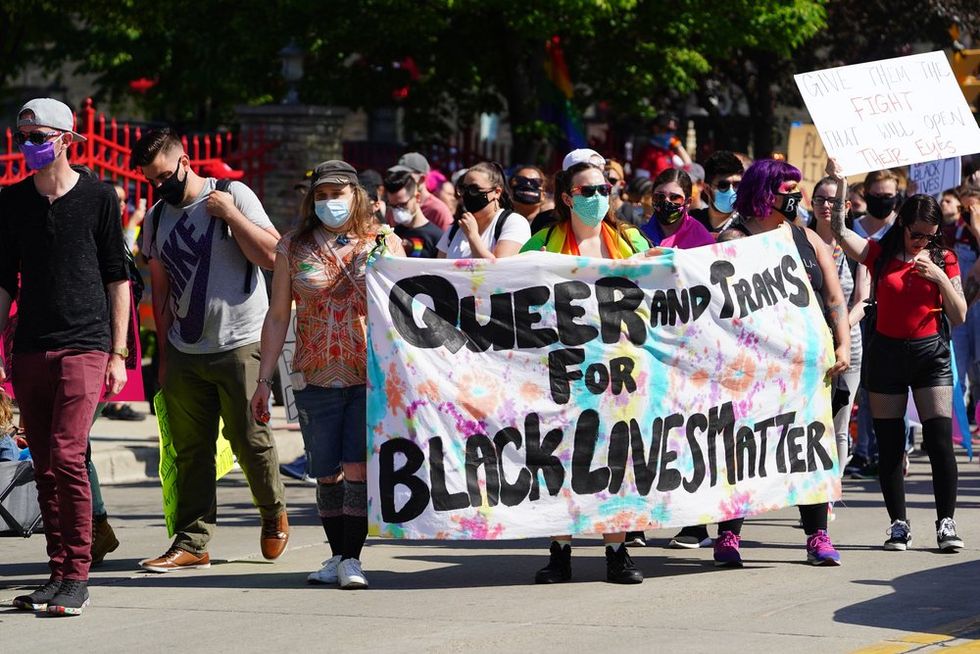
Wisconsin has a constitutional amendment that banned marriage equality in a 2006 referendum vote. It is also banned under a 1979 law.
Wyoming
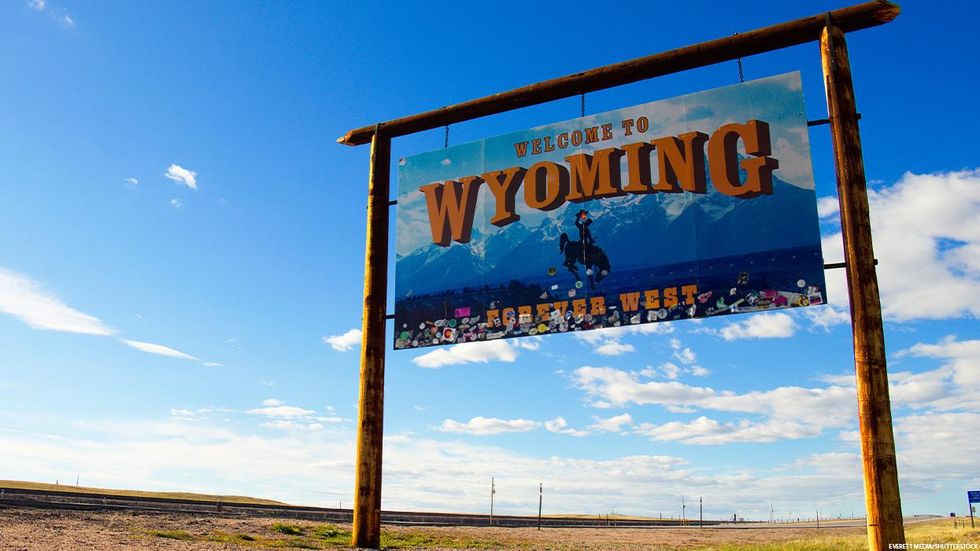
Wyoming banned marriage equality under a 2003 law which remains in its state statutes.

 Mark
Mark 





